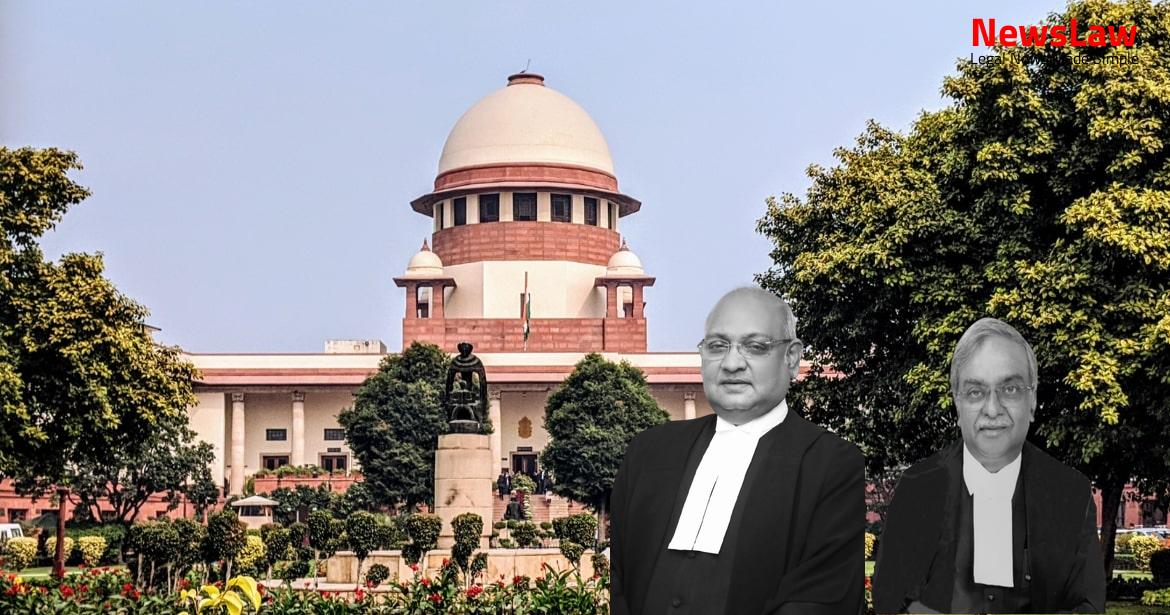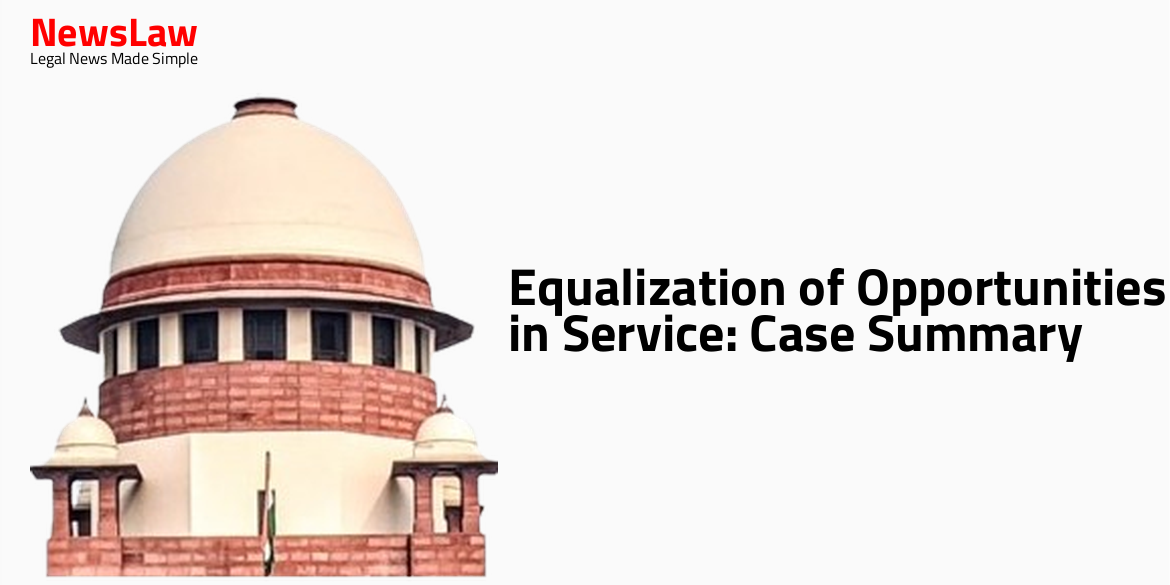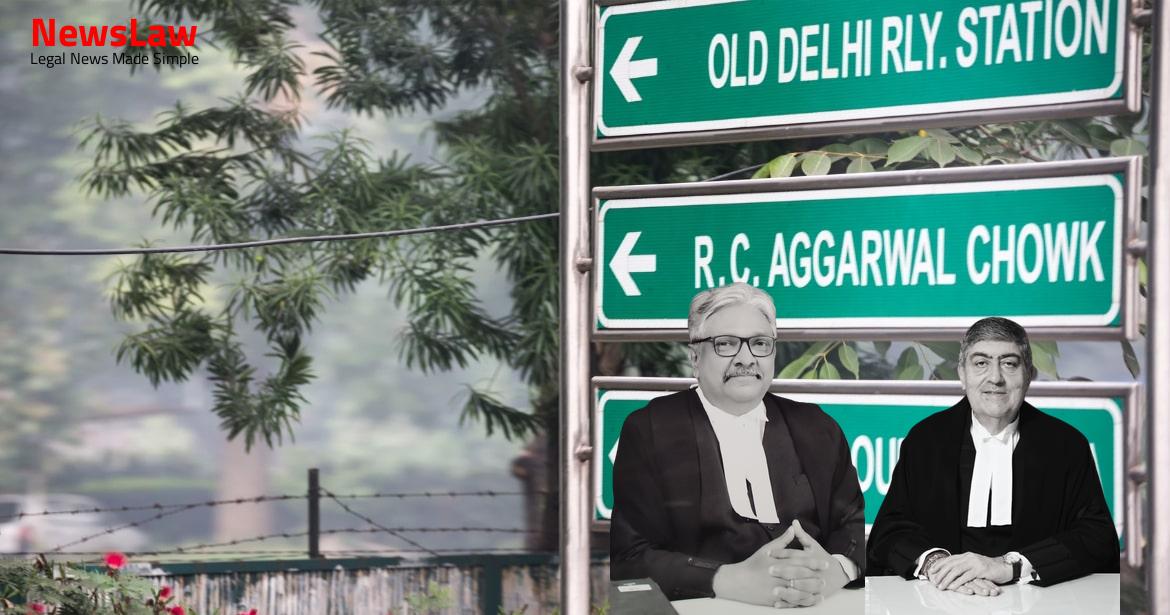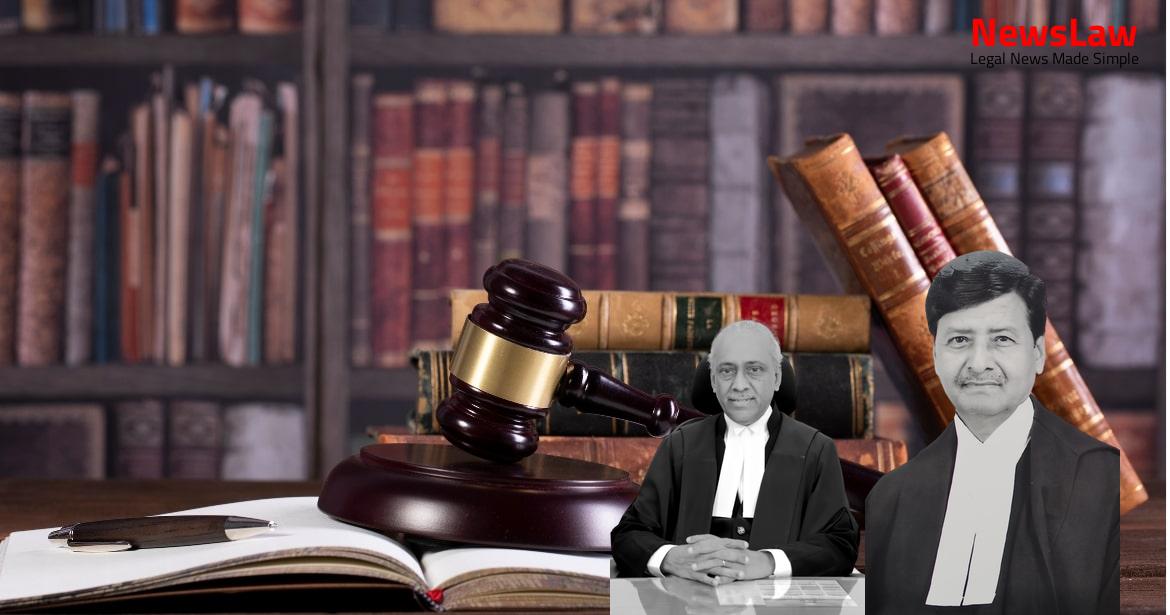Explore the intricate legal analysis conducted by the High Court in a case involving the imposition of excise duty and the assessment of negligence in a fire incident. The court’s examination of liability, negligence, and the adherence to legal provisions provides valuable insight into the application of law in complex situations. Dive into the details of the court’s reasoning to understand the nuanced legal aspects at play.
Facts
- The High Court observed that there was no apparent negligence on the part of the company and concluded that the incident was an act of God.
- The High Court stated that negligence is a condition precedent for fiscal liability, and since no negligence was found on the part of the company, the demand for payment was deemed illegal and unsustainable.
- The Excise Commissioner’s order mentioning possible reasons for the fire, such as short circuits, was challenged by the High Court for lacking material foundation and being based on conjectures and surmises.
- The High Court highlighted that there was no evidence to support claims of negligence in maintenance of electrical equipment or the quality of fireproofing at the distilled property.
- The State of Uttar Pradesh and related authorities challenged the High Court’s decision to quash the demand for loss of excise revenue due to the liquor destruction in a fire.
- The High Court emphasized that fiscal liability cannot be imposed without concrete evidence of negligence, especially in a case where the loss was attributed to an act of God.
- The High Court allowed the writ petition, set aside the previous orders, and declared the demand for payment as illegal and unsustainable.
- The High Court directed the Excise Commissioner to reconsider the application regarding the deposited money in light of the fact that it was in compliance with an interim order.
- The High Court set aside the orders of demand and recovery towards the alleged loss of excise revenue based on Rule 7(11) of the Rules of 1969.
- A show-cause notice was issued to the respondent company regarding the recovery of excise duty due to alleged failure in keeping stock of liquor safe.
- The company deposited Rs. 3 crores with the District Magistrate in response to the show-cause notice.
- The Excise Commissioner proposed to recover excise duty based on Rule 709 of the Excise Manual and sought directions from the Principal Secretary.
- The Principal Secretary advised proceeding with the recovery of excise duty from the company based on the destruction of IMFL stock in a fire incident.
- The Excise Commissioner asked the District Magistrate to quantify the excise duty leviable under Rule 7(11) of the Rules of 1969.
- The respondent company raised concerns about the imposition of excise duty on IMFL destroyed in a fire and requested a determination of liability before proceeding with recovery.
- The High Court, in its order, noted that Rule 7(11)(a) was not applicable as there was no wastage in handling operations but loss due to fire.
- A significant amount of Indian Made Foreign Liquor was destroyed in the fire incident at Shahjahanpur on April 10, 2003.
- The High Court allowed the writ petition filed by the respondent company, stating that no negligence was observed on the part of the company and the incident was an act of God.
- The respondent filed a writ petition against the recovery proceedings, and an interim order was passed staying the recovery subject to the deposit of Rs. 3 crores.
- The respondent’s petition for special leave to appeal against the interim order was rejected by the Court.
- Ancillary issues related to insurance coverage and the receipt of insurance claims by the respondent were also raised in the litigation.
Also Read: Legal Analysis on Alleged Multiple Agreements in Property Sale Case
Issue
- The principal questions requiring determination are highlighted in the text
- One question is regarding the effect of the insurance coverage only on the value of liquor and not on the excise duty, particularly in relation to the insurance claim received
- Another question pertains to the demand of excise duty on the liquor lost in fire and whether it is authorized by law and has been raised as per the relevant provisions
- Finally, the third major question is about the nature of the fire incident, whether it was beyond human control and if there was no negligence involved
Also Read: Ensuring Maintenance Rights: Court’s Legal Analysis
Arguments
- The imposition of excise duty on liquor manufactured in the distillery is legal and valid.
- The incident of fire in the distillery cannot be considered an act of God as it was not attributed to natural forces but human fault.
- Licensing requirements under the Act of 1910 must be strictly adhered to, and payment of duty or execution of bond is a precondition for the removal of intoxicants.
- The distillery had taken safety precautions and obtained necessary certifications prior to the fire incident, showing no negligence on their part.
- The responsibility for the safe custody of spirits in the distillery is on the licensee, and negligence can lead to liability for loss of revenue.
- The demand for excise duty on the lost liquor in the fire is legally justified under the provisions of the Act of 1910, as per the State’s authority to impose duties and levy them at the point of sale.
- The respondent’s failure to insure the excise duty value of the liquor is seen as negligence, justifying the duty demand.
- The respondent’s argument that excise duty is not payable on the destroyed stock is invalid as duty is leviable on bottled spirit once manufactured, even if not sold.
- Receiving insurance compensation for the destroyed liquor is akin to a sale, making the duty payment necessary for fairness to the State.
- The fire incident due to short-circuit was avoidable with proper care, indicating negligence on the part of the respondent.
- Excise duty is applicable from the entry of spirit into the distillery and at all subsequent stages, including bottling.
- The entire field of intoxicating liquors and excise duties falls under the State legislature’s domain, as upheld by relevant judicial decisions.
- Rule 709 of the Excise Manual was found to be applicable, and no duty could be imposed on the respondent due to the absence of negligence on its part.
- The definition of sale in the Sale of Goods Act, 1930, and the U.P. Trade Tax Act, 1948 was referenced to argue that the claim received from the insurance company for loss of IMFL stock cannot be considered as consideration.
- Under the Excise Act, duty is levied at the point of manufacture but collected only at the time of issuance for sale, allowing for a 1% wastage provision before full rates are charged.
- In cases of destruction or loss due to events like fire or theft, the distillery is made liable for loss of revenue as per the rules.
- The levy of excise duty in the present case was deemed unauthorized by law as the liquor had not been issued for sale and had not been lost due to distiller negligence, making the imposition of duty unconstitutional under Article 265 of the Constitution of India.
Also Read: Legal Analysis: High Court’s Critique of Authority Actions
Analysis
- The analysis delves into the various aspects related to the fire incident in question at the distillery.
- It discusses the indications pointing towards a short circuit as the possible cause of the fire.
- The lack of clarity on the exact cause of the fire is highlighted.
- The need for proper and safe electrical installations and firefighting measures is emphasized.
- The distinction between negligence, both active and passive, is explored.
- The requirement for taking all necessary care to safeguard liquor, value thereof, and the excise revenue is underlined.
- The shortcomings of the respondent’s defense related to the incident being an ‘act of God’ are evaluated.
- The principles of negligence and liability, as well as exceptions to liabilities based on negligence, are considered.
- The role of the licensee in ensuring the safe custody of stored alcohol and avoiding wastage is highlighted.
- The significance of exhaustive rules and regulations governing the production, bottling, and storage of liquor are acknowledged.
- The need for adherence to safety norms, including electrical installations, fire safety, and insurance coverage, is emphasized.
- The importance of being proactive in preventing potential hazards, such as fires, is stressed.
- Liability arises from breach of duty, which may be in the form of an act or omission.
- Liability is the bond of necessity that exists between the wrongdoer and the remedy of the wrong.
- The onus is on the respondents to prove proper care in maintaining the dam to avoid losses.
- Merely stating the increase in water level due to natural causes does not absolve liability.
- An ‘act of God’ is defined as an occurrence by natural forces free from human intervention.
- The principle of res ipsa loquitur applies when an accident suggests negligence of the defendant.
- In cases where the accident speaks for itself, the burden shifts to the defendant to prove absence of negligence.
- Excise duty is levied on manufactured goods, not just on sale proceeds.
- A single point duty principle applies to excise duty, levied at one of the specific points mentioned.
- The burden of proof in negligence cases shifts based on the application of the res ipsa loquitur principle.
- Applying the principle of res ipsa loquitur shifts the burden of proof to the defendant to show absence of negligence.
- Legislative competence on excise duty relates only to goods manufactured within the state.
- An ‘act of God’ relieves liability in cases of extraordinary and unforeseeable natural events.
- The Excise Commissioner may prescribe rules to regulate the time, place, and manner of payment of excise duty.
- The duty may be levied in various ways as directed by the State Government, such as import, export, transportation, and manufacturing of excisable articles.
- There are specific rules in the Excise Manual regarding the loss of spirit in distilleries and wastage allowance.
- No tax shall be levied or collected except by authority of law as per Article 265 of the Constitution of India.
- The relevant constitutional and statutory provisions highlight the regulation of intoxicating liquors and drugs in Uttar Pradesh under the U.P. Excise Act, 1910.
- The demand for excise duty on the lost liquor is authorized by law
- The fire incident cannot be considered beyond human control and negligence can be imputed on the respondent company
- The respondent company’s decision to only insure the value of liquor, not the excise duty, and their receipt of the insurance claim further shows negligence
- The appeal deserves to succeed, the writ petition by the respondent company should be dismissed
- The miscellaneous application for refund by the respondent company is rendered redundant and should be dismissed
- The insurer’s view on negligence for insurance claim does not bind the appellants regarding loss of revenue from the lost liquor
Decision
- The appeals are allowed
- Impugned orders dated 10.04.2017 and 06.11.2019 are set aside
- Writ petition and miscellaneous application by the respondent company are dismissed
- No order as to costs
Case Title: STATE OF UP THROUGH SECRETARY (EXCISE) Vs. M/S MCDOWELL AND COMPANY LIMITED (2022 INSC 13)
Case Number: C.A. No.-000169-000170 / 2022



